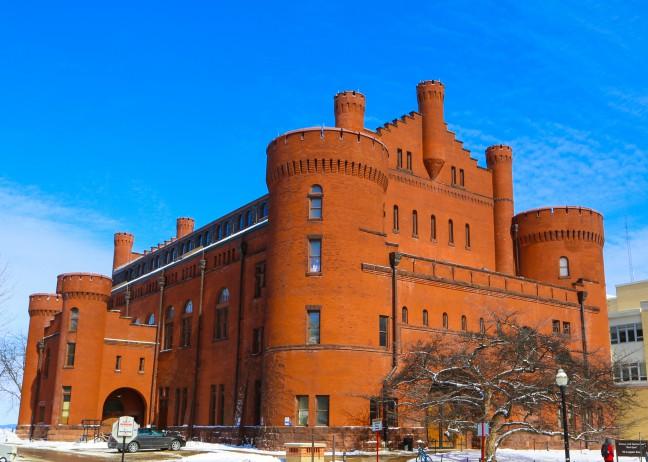In recognition of the 80th anniversary of Japanese American Internment, the Japanese Student Association organized its first “Week of Remembrance.” Every year around Feb. 19, the Japanese American community holds events throughout the U.S. to commemorate the signing of Executive Order 9066 due to which the American government unjustly incarcerated and stripped 120,000 people of their civil rights following the attack on Pearl Harbor.
Throughout the week, the JSA shared extensively-researched infographics to increase understanding about Japanese American Internment during World War II and the subsequent trauma that generations of Japanese Americans carry to this day.
Sharing the stories of Japanese Americans who were incarcerated can serve an important role in helping to avoid such injustices in the future, according to Lori Lopez, who serves as the director of the Asian American Studies Program at the University of Wisconsin.
“Even though these events happened a long time ago, they had a lasting impact on the Japanese American families who had to recover from that trauma and loss, and they created larger suspicions that all Asian immigrants shouldn’t be trusted,” Lopez wrote in an email statement to The Badger Herald.
Lopez said Japanese Americans were depicted in the media in a way that generated fear after the Pearl Harbor attack. Today, many different immigrant communities are still mistreated and misunderstood.
The UW-Madison Public History Project showed that though acceptance of Japanese Americans was stressed at UW after the attacks on Pearl Harbor, the environment at UW is not as welcoming as its high ideals preach.
Japanese Americans like Akio Konoshima, Tori Iura, Herbert Seijin Ginoza and Toshu Toki are just four UW students who faced anti-Japanese sentiment on campus in the wake of the World War II, according to the UW Public History Project.
The JSA hosted an informational workshop Friday, Feb. 18, where members of the organization answered questions and explored the topics at hand more in depth.
According to Lopez, using social media to spread awareness was purposeful. Lopez said this type of communication is an effective way to inform others and fight these stigmas on the UW campus, Madison community and beyond.
Editor’s note: This story was updated Feb. 23 at 6:43 p.m. to rephrase the sub-headline and the JSA’s aim for creating infographics.



